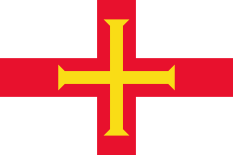INTELLECTUAL PROPERTY RIGHTS IN GUERNSEY

Opposition Term |
20 Days |
Registration Term |
10 Years |
First Renewal Term |
10 Years |
Subsequent Renewal Term |
10 Years |
Trade Marks Act (TMA) 1994 - is the primary law governing the mechanism of trademark registration and protection in Guernsey.
For getting a trademark registered in Guernsey, an application has to be filed with the Intellectual Property Office of the Bailiwick of Guernsey, which administers the entire trademark registration process.
It follows a 'first-to-use' system, which subjects to presenting evidence of prior use of the mark in the country.
Guernsey follows the 11th edition of Nice Classification. Multi-class trademark applications possible.
The third parties can file opposition actions against a trademark application within twenty (20) days following its publication.
In Guernsey, registered trademarks have a validity of ten (10) years from the date of application, which can be further renewed indefinitely for successive periods of ten (10) years each.
The grace period to renew a trademark after the date of expiry is six (06) months.
The term for cancellation of a registered trademark based on non-use is five (05) years from the date of registration.
Guernsey is a member of the Paris Convention for the Protection of Industrial Property.
The Registered Patents and Biotechnological Inventions (Bailiwick of Guernsey) Ordinance, 2009 and Regulations, 2012 provide for applications to extend rights under a UK or European (EP) patent registration or a registration from another approved jurisdiction.
The only documentation required is a certified copy of the UK, EP, or other approved registration. No further information is required.
Thereafter, the Registrar of the States of Guernsey Intellectual Property Office processes the patent application for registration.
To obtain patent protection, an invention must be new, non-obvious, inventive, and industrially applicable.
The types of patent applications that can be filed include Non-Convention Application and Convention Application.
National phase filing of a PCT patent is not possible. PCT applications, which designate the UK, will also cover Guernsey. Once a PCT patent derived from a PCT application is granted in the UK, it will also automatically be extended to Guernsey.
Pre-grant patent opposition is not available in Guernsey.
A patent registration is valid for the same period as specified on the underlying UK, EP, or other approved registration on which it is based.
Once a patent has been registered in Guernsey, there is an annuity payable to the Guernsey Government each year. The fee is due on the anniversary of the filing date of the underlying UK, EP, or other approved registration on which it is based.
The Registered Designs (Designated Countries and Designated Offices) Regulations, 2009 and The Registered Designs (Bailiwick of Guernsey) Ordinance, 2005 - form the legal basis for protection of industrial designs in Guernsey.
For getting an industrial design registered in Guernsey, an application has to be filed with the Registrar of Intellectual Property, which administers the entire process of registration.
Convention priority cannot be claimed in Guernsey.
Opposition against an industrial design application cannot be raised in Guernsey.
The duration of a registered industrial design in Guernsey depends upon the validity of the parent registration.
Guernsey is a signatory to the Berne Convention for the Protection of Literary and Artistic Works.
The Copyright (Bailiwick of Guernsey) Ordinance, 2005 - is the basic legislation governing copyright protection in Guernsey.
Registration is not required to obtain copyright protection: as soon as an original qualifying work exists in a tangible form and subjects to certain qualifications relating to the residence of the author and the country in which the work was first published, copyright arises.
Copyright in literary, dramatic, musical, or artistic works expires at the end of the period of seventy (70) years from the end of the calendar year in which the author dies.
If the work is of unknown authorship, copyright expires at the end of the period of seventy (70) years from the end of the calendar year in which the work was made, or if during that period the work is made available to the public, at the end of the period of seventy (70) years from the end of the calendar year in which it is first so made available.
If the work is computer-generated, copyright expires at the end of fifty (50) years from the end of the calendar year in which the work was made.
For a work of joint authorship, copyright expires at the end of the period of seventy (70) years from the end of the calendar year in which the last surviving known author dies.
For sound recordings, copyright expires at the end of fifty (50) years from the end of the calendar year in which the recording is made, published, or communicated to the public, whichever is later.

